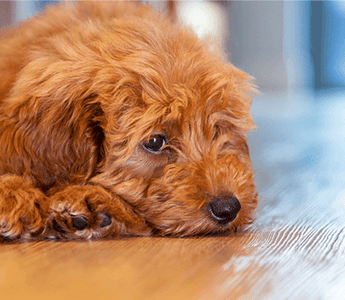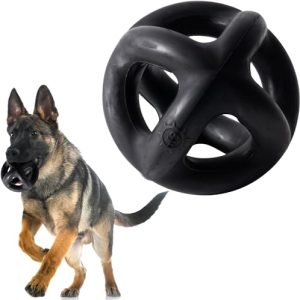Have you ever woken up to find your bed wet, wondering why your dog decided to wee right there? It’s frustrating and confusing, especially when your furry friend is usually so well-behaved.
You might be asking yourself, “Why does my dog wee on the bed? ” Understanding the reasons behind this behavior is the first step to fixing it. You’ll discover the surprising causes and practical solutions to keep your bed dry and your dog happy.
Keep reading—your peaceful nights are closer than you think.

Credit: rockykanaka.com
Common Reasons Dogs Urinate On Beds
Dogs urinating on beds can confuse many pet owners. This behavior often signals an underlying issue. Understanding common reasons helps address the problem effectively.
Several factors cause dogs to urinate on beds. These range from health problems to emotional triggers and natural instincts. Identifying the cause is key to finding the right solution.
Medical Issues To Consider
Health problems often cause sudden bed urination. Urinary tract infections make it hard for dogs to control urine. Bladder stones and kidney issues also affect bladder control. Older dogs may have incontinence due to age. Spaying or neutering status sometimes plays a role. Always consult a vet to rule out medical causes first.
Behavioral Causes
Some dogs urinate on beds due to behavior habits. Lack of proper house training leads to accidents indoors. Dogs may not understand where to pee. Submissive urination happens when dogs feel scared or nervous. Sometimes, dogs urinate to get attention from owners. Consistent training and patience can fix these habits.
Stress And Anxiety Triggers
Stress can cause unusual urination spots. Changes in environment upset dogs. New family members or pets increase anxiety. Loud noises or separation anxiety trigger accidents. Bedding smells comforting, so dogs pee there to calm down. Reducing stress helps stop this behavior quickly.
Marking Territory
Territory marking is natural for dogs. They use urine to claim spaces. Beds smell like their owners, making them prime spots. Intact males mark more often, but females do too. Marking is common in multi-dog homes. Neutering and training reduce this urge effectively.

Credit: bullybeds.com
Identifying The Root Cause
Understanding why your dog is urinating on the bed is key to fixing the problem. The behavior often signals something beyond simple mischief. Pinpointing the exact cause helps you respond effectively and shows your dog that you care.
Observing Your Dog’s Behavior
Watch how your dog acts before and after the incident. Are they restless, whining, or sniffing around the bed? These signs can hint at anxiety or discomfort.
Notice if your dog drinks more water than usual or tries to hide after the accident. These observations can guide you toward the root cause.
Consulting A Veterinarian
Health issues like urinary tract infections or kidney problems often cause unexpected urination. A vet visit can rule out or confirm these concerns quickly.
Don’t wait if your dog shows signs of pain, frequent urination, or blood in the urine. Early diagnosis makes treatment easier and prevents complications.
Keeping A Urination Diary
Track when and where your dog urinates over several days. Note details like time, location, and any unusual behavior.
This diary helps identify patterns or triggers, such as stress or schedule changes. Sharing this with your vet can improve diagnosis and treatment plans.
Effective Cleaning Techniques
Cleaning up dog urine from your bed needs care and attention. Effective cleaning techniques stop smells and stains from coming back. They also help keep your bedding fresh and hygienic. The right approach makes your bed safe and comfortable again.
Removing Odors Completely
Urine smells can linger even after washing. Use cold water to rinse the stained area first. Hot water can set the stain and odor.
Apply an enzymatic cleaner designed for pet urine. These break down urine molecules and remove odors. Let the cleaner sit for at least 10 minutes. Then blot with a clean cloth until dry.
Avoid using ammonia-based cleaners. They smell like urine to dogs. This can cause repeat accidents in the same spot.
Choosing The Right Cleaning Products
Pick products made for pet stains and odors. Check labels for enzymatic ingredients. These are best for urine removal.
- Enzymatic cleaners
- Pet-safe laundry detergents
- Odor neutralizers
Test any cleaner on a small fabric area first. This prevents damage or discoloration. Use products that suit your bedding material.
Regular household cleaners may not work well. They can leave residues attracting pets back to the spot.
Training And Prevention Tips
Stopping your dog from weeing on the bed often means changing habits through consistent training and thoughtful prevention. You can guide your dog toward better bathroom behavior by creating clear routines and using positive reinforcement. These tips focus on helping your dog understand where it’s okay to relieve themselves and making those options easy to access.
Reinforcing Proper Bathroom Habits
Reward your dog immediately after they pee outside or in the designated spot. Positive reinforcement like treats or praise helps your dog connect good behavior with a reward.
Be patient and consistent. If your dog has an accident on the bed, clean it thoroughly to remove odors that might encourage repeat behavior.
Ask yourself: Are you praising your dog enough when they go outside? Sometimes a little encouragement makes a big difference.
Using Crate Training
Crate training can prevent your dog from accessing the bed unsupervised. Dogs naturally avoid soiling their sleeping area, so a crate encourages holding it until the next bathroom break.
Start by making the crate comfortable and inviting. Use toys, blankets, and positive experiences so your dog sees the crate as a safe space, not a punishment.
Remember, the crate should never be used for long periods. Are you balancing crate time with enough exercise and freedom?
Providing Regular Bathroom Breaks
Schedule frequent bathroom breaks, especially after meals, playtime, and naps. This reduces the chances your dog will feel the need to go indoors.
Keep a consistent schedule. Dogs thrive on routine, and knowing when to expect a bathroom break helps prevent accidents on your bed.
If your dog struggles with bladder control, consider shorter intervals between breaks. How often do you currently take your dog outside, and could increasing that help?
Managing Anxiety And Stress
Understanding why your dog wees on the bed often leads back to anxiety and stress. Dogs express their emotions through behavior, and urinating inappropriately can be a sign they feel unsettled. Managing their anxiety can help reduce this behavior and bring peace to both you and your furry friend.
Creating A Calm Environment
Your dog’s surroundings play a big role in their stress levels. Keep their space quiet and free from sudden loud noises that might startle them. A cozy, familiar spot with soft bedding can provide comfort and a sense of security.
Think about your own home—does it feel welcoming and safe? Dogs pick up on your energy. Staying calm yourself can help your dog feel calmer too.
Using Calming Aids
There are several calming aids designed to ease your dog’s anxiety. Items like pheromone diffusers release scents that soothe your dog naturally. You might also try anxiety wraps or calming collars that provide gentle pressure, much like a comforting hug.
Supplements containing ingredients like chamomile or valerian root can support relaxation, but always check with your vet before adding anything new. Have you noticed any changes after trying these aids? Tracking their effects can guide you to what works best.
Engaging In Regular Exercise
Exercise is a powerful stress-buster for dogs. Daily walks, playtime, or simple games help release pent-up energy and distract from anxious thoughts. A tired dog is less likely to act out through unwanted behaviors like bed-weeing.
Try mixing up activities to keep your dog mentally and physically stimulated. How much exercise does your dog get each day? Sometimes, even a short burst of play can make a big difference.
When To Seek Professional Help
Knowing when to seek professional help is key for your dog’s well-being. Persistent bed wetting may signal deeper issues. Early intervention can prevent stress for both you and your pet. Professionals offer tailored support and solutions. Acting promptly improves your dog’s comfort and behavior.
Behavioral Therapy Options
Behavioral therapy targets habits causing bed wetting. A trained specialist identifies triggers and patterns. They use gentle training techniques to change your dog’s actions. This may include:
- Positive reinforcement for appropriate bathroom use
- Desensitization to anxiety triggers
- Structured routines to build good habits
Consistency and patience are important. Therapy can reduce accidents and boost your dog’s confidence.
Veterinary Follow-ups
Regular veterinary check-ups catch health problems early. Some medical issues cause involuntary urination. Common concerns include:
- Urinary tract infections
- Kidney problems
- Hormonal imbalances
Your vet may run tests and prescribe treatments. Follow-up visits ensure your dog improves and stays healthy. Never ignore sudden or frequent accidents without professional advice.

Credit: heoupet.com
Frequently Asked Questions
Why Does My Dog Urinate On The Bed?
Dogs may urinate on the bed due to anxiety, marking territory, or medical issues. Stress or changes in environment can trigger this behavior. Consider consulting a vet to rule out health problems. Training and providing a comfortable space for your dog might help curb this habit.
Can Anxiety Cause My Dog To Pee On The Bed?
Yes, anxiety can lead to inappropriate urination in dogs. Stressful situations or separation anxiety often result in such behavior. Providing a calm environment and consistent routine can alleviate anxiety. Consider consulting a professional for behavioral training to address underlying issues effectively.
Is My Dog Marking Territory On The Bed?
Dogs sometimes mark territory by urinating on household items, including beds. This behavior is common in unneutered males but can occur in any dog. Neutering, training, and reinforcing positive behaviors can help reduce marking. Understanding the triggers for marking can aid in managing this behavior.
Could A Medical Issue Cause Bed Urination?
Yes, medical issues like urinary tract infections or incontinence can cause bed urination. If your dog suddenly starts this behavior, consult a vet. Early diagnosis and treatment can prevent complications. Regular vet check-ups are essential for maintaining your dog’s urinary health.
Conclusion
Dogs may wee on beds for many reasons like stress or health issues. Watching your dog’s behavior helps find the cause. Clean accidents quickly to stop repeats. Give your dog a cozy, safe spot to rest. Talk to a vet if accidents keep happening.
Patience and care will help both you and your dog. Understanding the problem is the first step to fix it. Keep loving your dog and stay calm through this.

Emily Barker is the founder of ChillDogLife.com, a space dedicated to helping pup parents discover the best dog products, lifestyle tips, and cozy ideas for happier homes.
A lifelong dog lover, Emily combines her passion for pets with a knack for research to share trusted recommendations on everything from toys and furniture to health and everyday care.
Her goal is simple: to make life easier, stylish, and more joyful for dogs and the people who love them.







